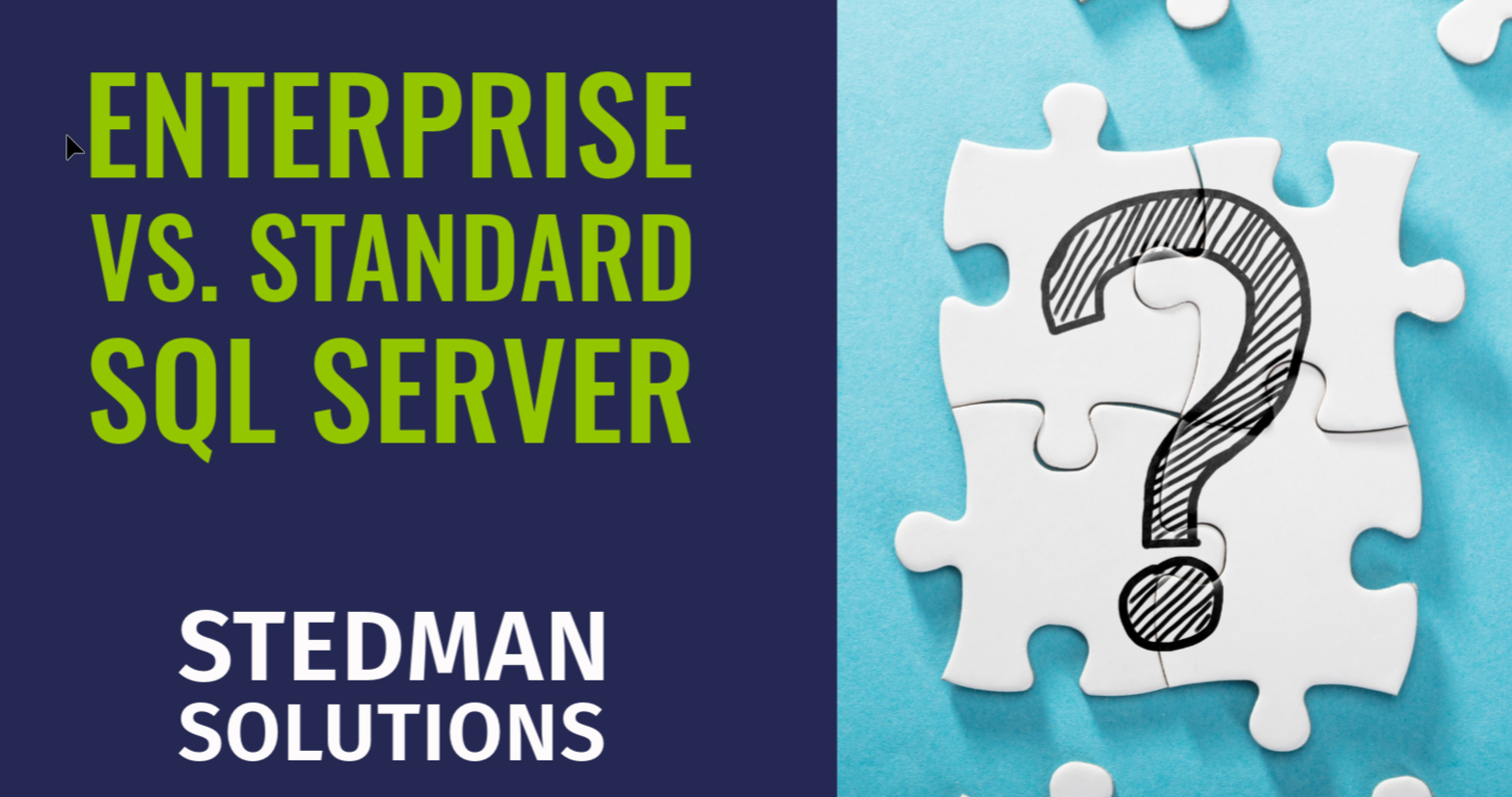Enterprise SQL Server vs. Standard SQL Server: Making the Right Choice for Your Business
Choosing the right SQL Server edition is a critical decision for any business, affecting performance, scalability, and cost. Microsoft offers several editions of SQL Server, but the most commonly compared are the Enterprise and Standard editions. In this blog post, we will explore the key differences between SQL Server Enterprise and SQL Server Standard, and help you decide which is best for your organization.
Core Differences Between Enterprise and Standard Editions
1. Performance and Scalability
Enterprise Edition: Designed for large-scale applications, the Enterprise edition supports advanced performance features like partitioned tables, parallel indexing, and high-performance in-memory OLTP. It can utilize an unlimited number of cores and memory, making it suitable for businesses with high transaction volumes and large databases.
Standard Edition: Suitable for small to medium-sized businesses, the Standard edition supports up to 24 cores and 128 GB of memory. While it provides solid performance for many workloads, it lacks some of the advanced features found in the Enterprise edition.
2. High Availability and Disaster Recovery
Enterprise Edition: Offers advanced high availability (HA) features, including Always On Availability Groups, which support up to eight secondary replicas, and online page and file restore. These features ensure minimal downtime and data loss, critical for mission-critical applications.
Standard Edition: Supports basic HA features like log shipping, database mirroring (with limited functionality), and Always On Basic Availability Groups, which support only one secondary replica. This may be sufficient for less critical applications but offers limited failover capabilities.
3. Security Features
Enterprise Edition: Includes advanced security features like Transparent Data Encryption (TDE), Always Encrypted, and Row-Level Security. These features provide enhanced protection for sensitive data, helping businesses comply with stringent regulatory requirements.
Standard Edition: Provides essential security features, including basic auditing and encryption. While it offers adequate security for many applications, it lacks some of the advanced protections available in the Enterprise edition. However with SQL Server 2019 and newer TDE is inlcuded in Standard Edition.
4. Business Intelligence and Data Warehousing
Enterprise Edition: Equipped with advanced BI capabilities, including data warehousing features like data compression, partitioning, and PolyBase. It also supports advanced analytics with machine learning services and in-database analytics.
Standard Edition: Supports basic BI and analytics features. While it can handle many reporting and analysis tasks, it lacks the comprehensive toolset available in the Enterprise edition.
5. Licensing and Cost
Enterprise Edition: Significantly more expensive due to its advanced features and unlimited scalability. Licensing is typically per core, which can add up quickly for large deployments.
Standard Edition: More affordable and offers a per-core or server + CAL (Client Access License) licensing model. This makes it a cost-effective choice for smaller businesses or those with fewer resource demands.
When to Choose Enterprise Edition
The Enterprise edition is ideal for businesses that:
- Require high scalability and performance for large databases and high transaction volumes.
- Need advanced HA and disaster recovery solutions.
- Handle sensitive data and need advanced security features.
- Utilize advanced BI and analytics capabilities for data-driven decision-making.
- Have the budget to invest in a premium solution.

When to Choose Standard Edition
The Standard edition is suitable for businesses that:
- Operate small to medium-sized databases with moderate performance requirements.
- Have basic HA and disaster recovery needs.
- Require essential security features.
- Need a cost-effective solution without the need for advanced BI and analytics tools.
- Have budget constraints and need to maximize their investment.
Choosing between SQL Server Enterprise and Standard editions depends on your business needs, performance requirements, and budget. While the Enterprise edition offers advanced features and scalability, the Standard edition provides a cost-effective solution for many small to medium-sized businesses.
At Stedman Solutions, we specialize in SQL Server Performance tuning and management, ensuring you get the most out of your chosen edition. Whether you need help deciding which edition is right for you or require expert SQL Server support, our Managed Services can assist. Contact us today to learn more about how we can optimize your SQL Server environment.
For continuous monitoring and alerting, try our Database Health Monitor tool at DatabaseHealth.com. It’s designed to keep your SQL Server running smoothly, regardless of the edition you choose.
